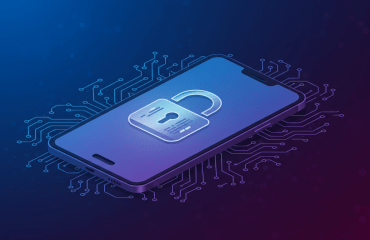advertising
In an era where mobility is essential, GPS applications for cell phones have become indispensable allies for navigation, exploration and trip planning. In this article, we'll dive into the best GPS apps available, highlighting their features, benefits, and how they've transformed the way we move around the world.
The Evolution of Navigation
1. From Printed Maps to GPS Apps
The navigation landscape has undergone a significant transformation, where traditional printed maps have been replaced by intuitive GPS applications, offering real-time information and advanced functionalities.
advertising
2. Accuracy and Reliability
Cell phone GPS apps not only provide accurate directions, but also offer real-time updates on traffic, road conditions, and even nearby location recommendations.
3. Custom Exploration
With features such as offline maps, points of interest and alternative route options, GPS apps empower users to explore the world according to their individual preferences.
Key Features of GPS Apps
1. Real-Time Navigation
GPS apps offer real-time navigation, guiding users step by step during their journeys, ensuring they stay on the right path.
2. Real-Time Traffic Updates
Integration with real-time traffic data allows apps to suggest alternative routes to avoid congestion, providing a more efficient driving experience.
3. Offline Maps
The ability to download maps for offline use is crucial for areas where connectivity can be a challenge, ensuring users have access to maps even without an internet connection.
4. Points of Interest (POIs)
The apps identify and highlight points of interest, such as restaurants, gas stations and tourist attractions, making it easier to discover new places.
5. Integration with Public Transport and Shared Travel Options
Some apps include information about public transport, bus schedules, subways and even shared ride options, providing a comprehensive view of travel options.
Main GPS Applications for Cell Phones
1. Google Maps
Google Maps is one of the most widely used GPS apps, offering real-time navigation, traffic updates, satellite imagery, and even information about local businesses.
2. Waze
Known for its active user community, Waze provides real-time traffic updates, road incident alerts, and quickest route suggestions based on current conditions.
3. Apple Maps
Apple Maps offers accurate navigation, 3D location visualization, seamless integration with Apple devices, and detailed information about points of interest.
4. MapQuest
With an intuitive interface, MapQuest provides turn-by-turn directions, traffic information, and offline maps, making it a robust option for users looking for an alternative.
5. HERE WeGo
HERE WeGo offers offline maps, directions for pedestrians, cyclists and drivers, as well as detailed information about public transport in cities around the world.
Benefits and Impact on User Experience
1. Navigation Efficiency
GPS applications provide navigation efficiency, reducing travel time, avoiding congestion and offering faster routes.
2. User Security
GPS apps' turn-by-turn guidance contributes to user safety by allowing users to focus on the road instead of distractions when looking for directions.
3. Discovering New Places
GPS apps open the door to discovering new places, making it easier to explore unfamiliar areas and find points of interest.
4. Advance Travel Planning
Users can plan their trips in advance, explore alternative routes, and ensure a smoother travel experience.
Challenges and Ethical Considerations
1. Privacy and Data Collection
Collecting location data raises privacy concerns. Users should be aware of apps' privacy policies and have control over the permissions granted.
2. Updates and Ongoing Maintenance
The accuracy of GPS applications depends on constantly updating maps and traffic data. Ongoing maintenance is essential to ensure accurate information.
3. Integration with Public Transport Systems in All Regions
Not all apps offer integration with public transportation systems in all regions, which may limit usefulness in some areas.
The Future of Mobile GPS Apps
1. Augmented Reality in Navigation
The implementation of augmented reality technologies can transform the way users interact with directions by overlaying useful information directly on the cell phone screen.
2. Advanced Route Customization
Apps can evolve to offer even more personalized route options, taking into account individual preferences, such as choosing more scenic or less crowded routes.
3. Integration with Driver Assistance
Integration with advanced driver assistance systems (ADAS) can provide a safer and smarter driving experience.
Conclusion
Mobile GPS apps have become essential in everyday life, providing not only accurate directions but transforming the way we move and explore the world around us. With innovative features, real-time updates and a variety of options, these apps continue to shape the way we plan our trips and discover new places. Despite challenges related to privacy and ongoing maintenance, the future of these apps looks promising, with potential advances in augmented reality, route personalization, and tighter integration with advanced driver assistance systems. Ultimately, mobile GPS apps are reliable guides on our daily journey, empowering us to explore the world with confidence and efficiency.



